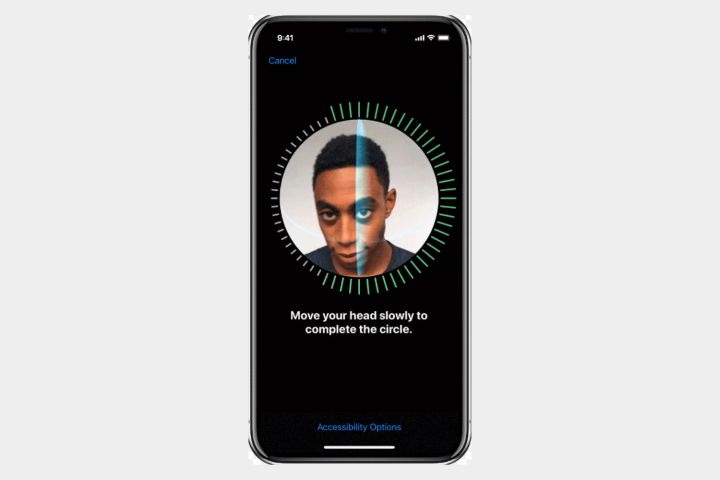
The smartphone world credits Apple for democratizing fingerprint-sensing technology when it released the iPhone 5S with Touch ID in 2013. The feature has appeared on many devices since, and a recently published patent application suggests Apple wants it to spread across the automotive industry as a replacement for the old-fashioned car key.
Uncovered by Roadshow, the application was filed in 2017, but it wasn’t published until February 2019. It uses engineering jargon to outline a “system and method for vehicle authorization” that lets motorists lock or unlock a car using a technology like Touch ID or Face ID. This could be done via an iPhone. For example, in-vehicle sensors would detect the user’s device as he or she approaches the car. The iPhone would then ask the driver to show a finger or a face in order to unlock the car. This would likely be the quickest and most cost-effective way to implement the feature.
Looking ahead, Apple could conceivably license the technology to an automaker seeking to integrate a fingerprint sensor or a facial recognition system directly into a car’s door. Motorists wouldn’t need to carry their phone, and they’d be able to leave their key fobs at home. They’d simply walk up to their car, put their finger on the sensor (or align their face with it), and walk in. The same technology could be used to start the engine.
Integrating Face ID and Touch ID into a car would largely solve the problem of thieves hacking key fobs. It would also make driving more convenient for motorists who share a car. The sensor would know who is about to drive off, and it would immediately adjust the temperature, music, and seat position to his or her pre-set preferences. And, as in-car purchases become increasingly common, Apple’s tech could ensure the person paying for gas, parking, or movie tickets via a car’s touch screen is authorized to do so.
This is all hypothetical — Apple hasn’t commented on the patent application. We don’t know when or if the technology it describes will ever reach production. We wouldn’t be surprised to see it offered sooner rather than later, however.
The number of people who use Touch ID or Face ID daily keeps growing so the time is right to expand the technology into other industries. Clearly, consumers have accepted the idea of unlocking a personal item with their fingerprint or their face and they trust the technology. Cars are a logical first step, especially as carsharing programs pick up steam in the United States and abroad.
Apple needs to act fast if it wants a slice of this market because the firm isn’t alone in its quest to reinvent the car key. Germany’s Bosch wants to replace the conventional key with a smartphone and a dedicated app; it displayed its Perfectly Keyless technology at CES 2019. Hyundai announced plans to make Touch ID-like fingerprint recognition technology available on the Santa Fe crossover in 2019. Buyers in select markets (including the United States) will soon find the feature on the list of extra-cost options.



